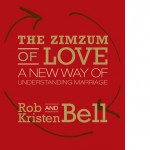 I finally saw Lincoln last night. Its core premise seems to be this: presentations of history should be slow and dull, like a Ken Burns documentary. I knew a handful of minutes in, a few lines of dialogue past the gratuitously brutal and out-of-place war scene (perhaps nothing but a self-reference to the opening of Saving Private Ryan?), that I would not love this movie. What I did not expect was how uninteresting I would find it throughout. I love history. I revere Lincoln. But at 1:15, almost exactly the half way point, I was distracted by an email and put the screener copy on hold, got caught up in a few things and darned near forgot all about it.
I finally saw Lincoln last night. Its core premise seems to be this: presentations of history should be slow and dull, like a Ken Burns documentary. I knew a handful of minutes in, a few lines of dialogue past the gratuitously brutal and out-of-place war scene (perhaps nothing but a self-reference to the opening of Saving Private Ryan?), that I would not love this movie. What I did not expect was how uninteresting I would find it throughout. I love history. I revere Lincoln. But at 1:15, almost exactly the half way point, I was distracted by an email and put the screener copy on hold, got caught up in a few things and darned near forgot all about it.
Many have commented before on the odd coincidence of two blockbusters on the same subject, slavery, by two of modern filmmaking’s most beloved directors coming out at the same time: Spielberg’s Lincoln and Tarantino’s Django Unchained. I saw Django back in December. Last month, I also watched the PBS documentary series, The Abolitionists. I found The Abolitionists — all three+ hours — engaging, informative and moving . I found Django emotionally powerful, morally powerful and absolutely entertaining. Lincoln… is dull as drying paint.
I am a patient and thoughtful person. I don’t get bored simply because content moves slowly. My finding the longer documentary The Abolitionists riveting proves that.
Lincoln‘s dull style, and the acclaim it has received, seem to come from this idea that it’s a serious subject and serious subjects should be treated seriously. Not like Tarantino. None of his raw emotionality. Or his irreverence. This reminds me so much of the difference in worship styles. There’s even a recurring theme in Lincoln about discomfort with cursing.
Much as I loved Django, I would not want every movie I watch to be over-the-top and self-consciously controversial. In the same way, while the occasional exuberant intense worship experience is fun and inspiring, to do that weekly would be a bit much. While I appreciate the role of preachers who try to shake you up and unseat your comfortable beliefs, that’s not what I want every week. But so much of worship is like Lincoln: dull in order to seem respectful and reverent — stripped of any emotion or personal connection.
What I love, and what I experience every week at St. Lydia’s, is kind of like The Abolitionists. It’s touches the heart, but through telling stories and creating personal connections, not through over-the-top emotional appeals. It can be powerful and serious, but that doesn’t mean it can’t be silly and loose sometimes too. Most importantly, it is never self-consciously earnest. It’s reverent without losing its irreverence.
Back to the movie
A bit more of a review of Lincoln, while we’re on the subject:
While Daniel Day Lewis will likely get the Academy Award for his expertly-method-acted portrayal of Lincoln, I found his character unlikable and those weighty moments, when history was made, oddly empty of emotional power.
The idea that Sally Field was nominated for best supporting actress for her role as Mary Todd Lincoln is inexplicable. Her performance and those of David Strathairn and Hal Holbrook are strained and mannered. Her’s especially. Which would stand out more if it weren’t in tune with the whole movie. (Tommy Lee Jones and James Spader offer flashes of charisma.)
The soundtrack is the usual overwrought melodramatic pseudo-classical John Williams stuff that has diminished Spielberg’s films since they teamed with his first major film Sugarland Express. This time, to give it that 19th-century feel, there is also occasional old-timey music. It’s arranged and performed by the late Jim Taylor, widely respected for his authenticity in recreating Civil War songs, but its use during “comical” moments in the film, such as when characters are running frantically to deliver a message, is embarrassing. It contrasts starkly with the respectful and updated use of old-timey music
by T. Bone Burnett in the Coen Brothers’ O Brother Where Art Thou?
I wish Lincoln was a good movie. The subject is fascinating, and the complexities of this time, not so long ago in American history, is important to understand. I imagine for many people, this movie will now become the official story. That’s a shame. Because history doesn’t need to be and shouldn’t be boring.












